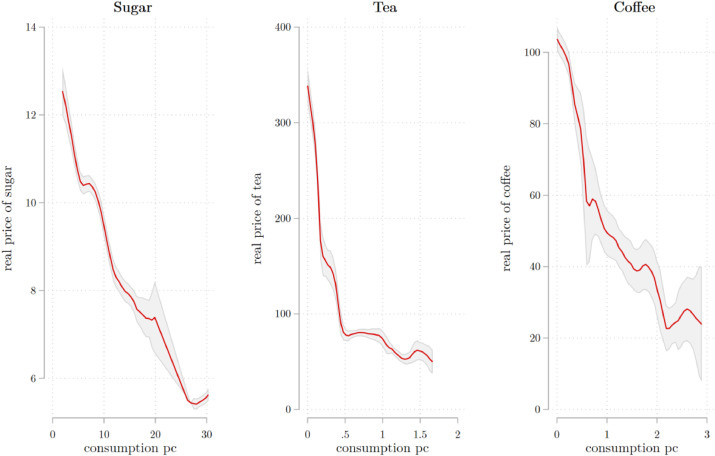Paper Round
Week of August 8, 2022
Hello, all! Welcome to the latest Paper Round, where I discuss recent publications in economic history (and related areas). These semi-regular newsletters are my thank-you notes to paying subscribers. If you’d like to support my research, you know what to do. Enjoy!
Over at Explorations in Economic History, Jonathan Hersh and H. J. Voth have a really interesting paper arguing that we mismeasure the introduction of colonial goods after 1492 in our welfare calculations. Using Hausman's measure of compensating variation and the Greenwood-Kopecky method(see below), they show that colonial goods like tea, sugar, and coffee may have together added 7 to 14 percent to consumer welfare, with 10 percent being the most likely number. This is pretty impressive in a period of stagnant real wages.
Keep reading with a 7-day free trial
Subscribe to Great Transformations to keep reading this post and get 7 days of free access to the full post archives.


